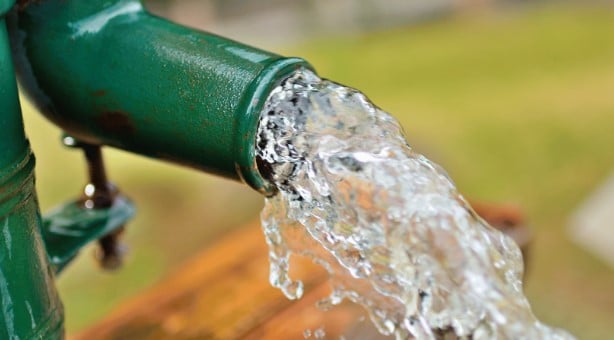The Importance of Regular Water Well Cleaning: What You Should Know

Are you one of those people who take water for granted? You turn on the tap, and there it is – safe, clean water. But have you ever stopped to think about where that water comes from? If you’re one of the millions of Americans who rely on private wells for your water supply, it’s essential to know that your well needs regular cleaning.
Over time, debris, sediment, and bacteria can accumulate in your well system, leading to chemical or biological reactions that can affect the overall biological activity of your water supply.
Even if there are no noticeable problems, regular cleaning can help extend the life of your water treatment system, prevent future bacterial growth, and ensure that your drinking water is safe and clean.
In this article, we’ll discuss the importance of regular well cleaning, the water cleaning process, and why it’s crucial for the long-term health of your water supply. We’ll also explore the signs that indicate you need to clean your well and the most effective strategies for well cleaning.
What is Water Well Cleaning?
If you’re a well owner, it’s essential to know what water well cleaning is and why it’s necessary.
Well-cleaning removes any built-up sediment, debris, or bacterial activity from your well system. Over time, these materials can accumulate and cause water quality problems, including taste and odor issues and potential health problems if left untreated.
What is the Process of Well Cleaning?
If you own a water well, you already know the importance of regular well cleaning for maintaining good water quality and extending the life of your water treatment system. But what is the process of cleaning your well?
There are two basic approaches to cleaning water well: mechanical methods and chemical cleaning. Mechanical methods involve removing debris and sediment from the bottom of the well, the well screen, and other well components. This can be done using a submersible pump, a pressurized air system, or other methods.
Chemical cleaning involves using chemicals to kill anaerobic bacteria, which can cause taste and odor problems in your water system. This is often the most effective strategy for cleaning a well with apparent signs of bacteria growth or odor problems.
When using chemicals, a qualified water well contractor will introduce chemicals into the well, allowing them to react with the bacteria and other contaminants. After the chemical reactions, the well is pumped and flushed until the water runs clear.
It’s important to note that chemical cleaning is not a cure-all for all well problems. If the well screen is clogged or the well casing has corroded significantly, a mechanical approach may be necessary to restore the water flow.
Why Is Water Well Cleaning Important?
Well-cleaning is essential to maintain the water quality you pump and use in your immediate environment. Here are a few reasons why you should prioritize regular cleaning of your well:
Improve Water Quality
Over time, debris and other contaminants can build up in your well system, significantly affecting the quality of your well water. The accumulation of debris can cause bacteria to grow and negatively impact the taste and clarity of your water. Cleaning your well system can eliminate these contaminants and improve your water quality.
Prolong Water Treatment System Life
Your water treatment system works harder when there is debris in your well. If the well screen or water pump is clogged, the system has to work harder to pump water, which can shorten the lifespan of your system. You can keep the system running efficiently and prolong its life by regularly cleaning your well.
Prevent Plumbing Fixture Damage
Debris buildup in the well can cause blockages in your plumbing fixtures, leading to costly repairs. Cleaning your well can prevent these blockages from happening in the first place, saving you money in the long run.
How Can I Tell if My Water Well Needs to be Cleaned?
Regular water cleaning is essential to maintaining the quality of your well water. But how can you tell if your water well needs to be cleaned? Here are some signs to look out for:
Obvious Signs
One of the most obvious signs that your well needs to be cleaned is the presence of such debris in the water. If you notice dirt, sand, or other particles in your water, it could indicate that your well needs to be cleaned.
Similarly, if you notice a foul odor from your water or a strange taste, it could be a sign of bacteria in your well water.
Plumbing Fixture Issues
If you notice issues with your plumbing fixtures, such as low water pressure or frequent clogs, it could be a sign that your well needs to be cleaned. Debris buildup in your well can cause blockages in your plumbing fixtures, leading to costly repairs.
Decreased Flow Rate
If you notice a decrease in the water flows from your well, it could be a sign of a clog in your well intake or screen. Cleaning your well can help to restore the flow rate and prevent damage to your well pump.
Total Coliform Bacteria
Total coliform bacteria are a group commonly found in the environment and can indicate the presence of other harmful bacteria in your water. If your water tests positive for total coliform bacteria, it could indicate that your well needs to be cleaned.
Professional Water Testing
One of the best ways to determine if your well needs to be cleaned is to have your well water tested by a professional water testing service. They can test for various contaminants, including bacteria and other harmful substances, and provide recommendations for maintaining good quality.

How Often Should a Water Well be Cleaned?
The frequency with which a water well should be cleaned depends on several factors, such as the well’s depth, the water source’s quality, and the amount of water used.
Generally speaking, it is recommended that residential water wells be cleaned and maintained every 3-5 years. This will help keep debris from becoming a food source for bacteria and other contaminants and prevent screens from becoming clogged up.
Well owners should also perform regular maintenance to ensure their well functions correctly. This includes regularly testing the quality and checking physical components such as the casing, pump, and pressure tank.
In some cases where heavy agricultural or industrial activity has occurred in the area or there is a history of bacterial contamination, it may be necessary to clean your water well more frequently than usual.
When cleaning your water well, consulting a licensed and experienced professional is often the best way to determine how often you should proceed directly. They can assess your specific needs and circumstances to determine the most effective strategy for keeping your well in good working order without having it work harder than necessary.
How Much Does it Cost to Clean Out a Well?
The cost depends on a few factors, like the size of your well, how deep it is, what type of well you have, and whether there’s any contamination present.
Generally, cleaning your well can cost anywhere from a few hundred to several thousand dollars. For example, a shallow well with no significant issues may only cost around $500 to $1,000 to clean. On the other hand, a deep well that’s clogged with rubble or has a taste problem may cost more.
But don’t worry! Even though cleaning your well may seem like a lot, it’s a cost-effective way to keep your water flowing smoothly. If you neglect good maintenance practices, you could have bigger problems that could cost you much more in the long run.
Frequently Asked Questions (FAQs)
How many years does a water well last?
The lifespan of a water well can vary depending on a few factors, such as the type of well, the level of use, and the quality of the water. With good maintenance practices and regular cleaning, a well can last for decades.
However, the screen or pump may become clogged or damaged in some cases, and the well may need to be cleaned or repaired, which might lessen the lifespan of your well.
Should I put bleach in my well?
In some cases, adding a small amount of bleach to your well can help disinfect the water and prevent harmful bacteria from growing. However, it’s important to follow specific guidelines for how much bleach to use and how to distribute it properly throughout your well.

Wrapping Up
Cleaning you well regularly is essential for maintaining a safe and reliable water supply. Neglecting to clean your well regularly can lead to various issues that could be hazardous to your and your family’s health.
If you are experiencing any signs mentioned above that your well needs cleaning, it’s time to take action. You need a reliable and experienced well-cleaning service to handle the job.
WildHeronDrilling is a trusted and professional well-cleaning service that can help ensure your water well is clean, safe, and reliable. Contact WildHeronDrilling today to schedule a cleaning appointment and enjoy peace of mind with a clean and safe water supply.
